
Healthcare professionals work hard to deliver quality care to their patients. Still, unfortunately, one of the biggest challenges they face is maintaining communication with patients who may be spread out across different locations or time zones. That’s why email marketing is such an essential tool for healthcare providers.
Healthcare email marketing can ensure that you are their top priority by delivering critical information and engaging with patients conveniently. It can also help you decrease missed appointments and improve overall patient engagement, which is essential to success.
This article will discuss healthcare email marketing in detail, including its various benefits and some actionable strategies you can implement to get started.
What Is Healthcare Email Marketing?
Healthcare email marketing is a form of marketing that enables healthcare providers and organizations to maintain direct communication with their patients through email. That includes sending messages about appointments, health tips, educational resources, and more.
Involving patients and consistently providing valuable content helps healthcare providers achieve higher patient satisfaction levels, more successful retention rates, and fewer missed appointments. It is the most cost-effective method of reaching your target demographic and yields optimal outcomes.
Benefits Of Healthcare Email Marketing You Must Know
Leveraging email marketing in the healthcare sector can be a potent instrument for healthcare organizations to engage with their audience effectively and attain their marketing objectives. Here are five benefits of healthcare email marketing that you should know:
Targeted Communication:
Utilizing email marketing is an influential tool enabling the sending of personalized messages to specific groups of people. You can ensure your recipients receive relevant crafting content by segmenting your audience according to their interests, demographics, or past interactions.
This targeted communication can increase engagement and conversions by tailoring your messages to your audience’s interests. Email segmentation refers to grouping people with common characteristics like age, gender, or recent purchases.
By sending targeted messages customized to your subscribers based on their behavioral patterns and spending habits, you can increase engagement rates, drive conversions, and foster long-term customer loyalty. Studies indicate that 72% of consumers exclusively interact with personalized messages, making email segmentation a highly effective strategy to positively impact a company’s bottom line.
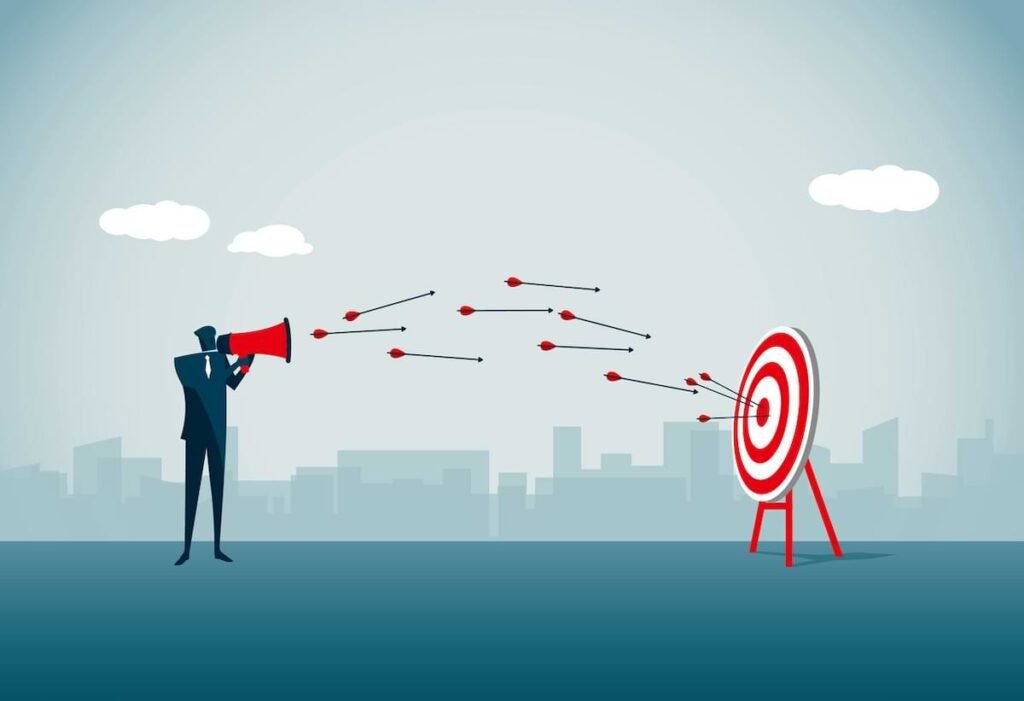
Source : gingercup.com
Cost-Effective:
Email marketing is more economical than conventional marketing approaches like print advertising or direct mail. Email campaigns have minimal design and distribution costs, allowing healthcare organizations to reach many recipients without breaking the bank.
Starting an email campaign costs low, and the return on investment (ROI) is significantly high. Utilizing email as a potent marketing channel, email marketing involves promoting a business’s products or services. It can help inform customers of the latest items or offers by integrating them into marketing automation efforts.
Email marketing also allows performing A/B tests on a subject line or call to action to pinpoint the best-performing message. However, email marketing has disadvantages, such as investing in strong copywriters or offering additional promotions to capture the audience’s attention.

Source : marketing91.com
Increased Patient Engagement:
Email marketing stands as a direct and efficient approach to engaging with patients. Healthcare providers can email newsletters, educational materials, appointment reminders, and updates on new services or treatments.
This direct communication allows valuable information to be delivered directly to patients’ inboxes, prompting them to take action, such as scheduling appointments or staying informed about their health.
By leveraging email marketing, healthcare professionals can efficiently encourage patient engagement and establish a reliable communication channel. It offers a convenient way to disseminate relevant information and foster patient relationships, ultimately improving healthcare outcomes.
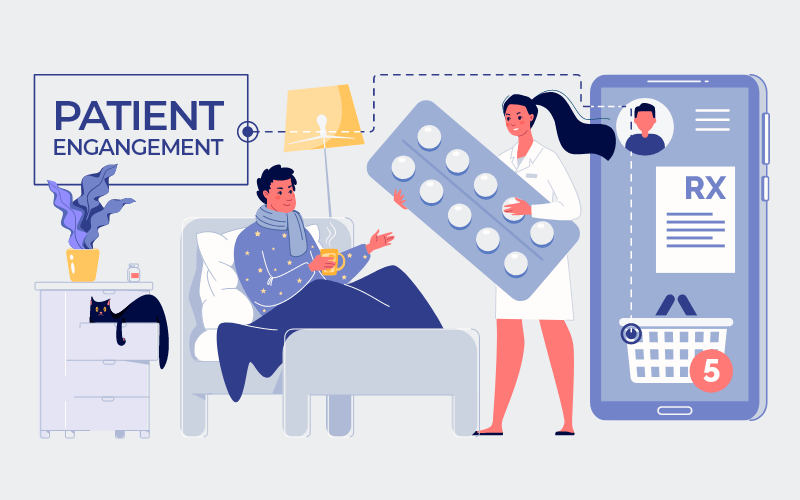
Source: kapture.cx
Measurable Results:
Email marketing platforms provide comprehensive analytics and reporting capabilities that empower you to evaluate the efficacy of your campaigns. Utilize these tools to monitor and assess key performance indicators, including open rates, click-through rates, conversion rates, and additional metrics.
By analyzing these data points, you acquire valuable insights into your email campaigns’ performance. This knowledge allows you to discern successful strategies from less effective ones, facilitating refining your marketing approaches.
Additionally, you can leverage the gathered information to optimize future campaigns, employing tactics that have proven successful. Ultimately, email analytics equip you with the information required to make data-driven decisions and enhance the overall effectiveness of your email marketing endeavors.

Source: docyard.eu
Remember that healthcare email marketing in the United States should always comply with applicable privacy and data protection regulations, such as HIPAA. Ensure you handle patient information securely and obtain proper consent for email communications.
Is Email Marketing Automation Important In Healthcare?
Email marketing automation uses software and tools to automate different elements within an email marketing campaign. It involves setting up predefined triggers and actions that send targeted emails automatically, contingent on specific criteria, such as user behavior or demographic information. Automation streamlines the email marketing process, allowing healthcare organizations to deliver personalized and timely messages to their audience.
Email marketing automation is crucial in the healthcare industry for several reasons:
Personalized Communication:
Automation in healthcare allows organizations to utilize personalized email communication strategies, such as healthcare email marketing. These emails are designed based on patient preferences, demographics, and past interactions, incorporating the keyword “healthcare email marketing” naturally.
The aim is to create tailored content that resonates with each recipient, enabling healthcare providers to increase engagement through effective email marketing techniques. Organizations can efficiently deliver highly relevant information to patients through automation, ensuring a more effective communication process.
This approach enhances patient-provider interactions by providing content specifically targeted to individual needs and interests, thus leveraging the power of healthcare email marketing. By leveraging automation for personalized email communication, healthcare organizations can optimize engagement and deliver valuable information to their patients, utilizing the potential of healthcare email marketing to its fullest.
Patient Education And Engagement:
Email automation in healthcare, including healthcare email marketing, enables providers to effectively communicate with patients by delivering targeted and timely health information. Through automated email campaigns, healthcare providers can send reminders for preventive care, such as vaccinations or regular check-ups, ensuring patients stay on top of their health needs.
Appointment notifications can be sent to patients, reducing the chances of missed appointments and improving overall healthcare management. Additionally, incorporating its strategies, automated emails can provide medication adherence tips, helping patients follow their prescribed treatment plans and improve medication compliance.
Furthermore, patients can receive updates on their health conditions, including relevant news, research findings, or support resources, empowering them to participate actively in their healthcare journey. Email automation is crucial in educating and engaging patients, allowing them to stay informed and proactive in managing their health.
Efficient Appointment Management:
Automating appointment-related emails streamlines communication for healthcare organizations. Automation can send confirmations, reminders, and follow-up messages without manual intervention.
This automation process alleviates the administrative burden placed on healthcare staff, enabling them to concentrate on other essential tasks. Furthermore, implementing automated emails minimizes the risk of missed appointments as patients receive timely reminders.
This improves the patient experience by ensuring that appointments are remembered and noticed. In summary, automating appointment-related emails enhances efficiency, reduces administrative workload, prevents missed appointments, and improves patient experience.
Nurturing Patient Relationships:
Email automation in healthcare allows providers to maintain connections with patients beyond their scheduled appointments. It facilitates sending various types of content, such as post-visit surveys, wellness tips, newsletters, and targeted campaigns aimed at specific patient segments. This continuous communication serves multiple purposes:
First, it fosters trust between patients and providers, as consistent engagement demonstrates a commitment to their well-being. Second, it helps cultivate loyalty by ensuring patients feel valued and cared for, even outside face-to-face interactions. Finally, it strengthens the overall patient-provider relationship, promoting a healthcare approach that is more comprehensive and patient-centered.
Streamlining Workflows:
Automation serves as a time-saving remedy for repetitive tasks in healthcare, like sending welcome emails to new patients, scheduling check-up reminders, and managing subscription preferences. Healthcare organizations can streamline these processes by implementing automation and achieving multiple benefits.
Firstly, it saves time by eliminating manual intervention, enabling healthcare professionals to dedicate their attention to more crucial tasks. Secondly, automation reduces the risk of errors during manual execution, ensuring accuracy and reliability.
Lastly, it enhances operational efficiency by optimizing resource allocation and improving workflow. In summary, automation empowers healthcare organizations to simplify tasks, save time, minimize errors, and improve operational effectiveness.
Analytics And Optimization:
Email automation platforms offer comprehensive analytics and reporting functionalities to assist healthcare marketers. These tools enable them to monitor essential metrics, including email open rates, click-through rates, conversions, and more.
By utilizing these metrics, healthcare marketers can assess the effectiveness of their email campaigns and pinpoint areas that require enhancement. This data-driven approach facilitates campaign performance evaluation and empowers marketers to make informed decisions.
Additionally, it enables them to optimize their future email strategies by leveraging the insights gained from the analytics. Ultimately, email automation platforms equip healthcare marketers with valuable information to improve their campaigns and achieve better results.
It is important to note that while email marketing automation offers numerous benefits, healthcare organizations must prioritize patient privacy data security and comply with relevant regulations (e.g., HIPAA in the United States) when handling sensitive patient information.
Six Actionable Healthcare Email Marketing Strategies
To get the most out of healthcare email marketing, there are several strategies that you should consider implementing, including:
Including Opt-In Forms
One key strategy for successful email marketing is incorporating opt-in forms into your website and social media pages so patients can quickly sign up to receive your emails.
For example, embedded forms, pop-ups, etc.
Place them strategically on your website, such as in your footer or at the bottom of each page, to increase the likelihood that interested patients will sign up. This will assist you in constructing a focused email list of subscribers genuinely interested in the content.
Leveraging Social Media
Another approach to successfully reaching your customers is to utilize platforms like Facebook and Twitter in social media as a catalyst for driving attention to your email campaigns.
Utilizing social media can assist in reaching a broader audience and give you greater visibility on the web. You can also encourage patients to share your emails with their friends and family, amplifying the reach of your campaigns.
Segmenting Your Patients
Segmenting is another critical strategy for healthcare email marketing campaigns. It involves
By grouping similar patients into targeted lists, you can ensure that each group receives content relevant to their needs and interests, ultimately helping improve patient engagement and satisfaction.
Writing Engaging Email Subject Lines
Engaging email subject lines immediately grabbing their attention is essential to getting your patients to open your emails. One way to do this is to include actionable language in your subject lines, such as “sign up now” or “save the date.”
You can also experiment with different subject lines, such as questions and curiosity-based headlines, to see which ones get the most clicks.
Personalizing Your Email Copy
To further boost engagement with your emails and improve response rates, it is essential to do email personalization in your email copy by including relevant details for each patient.
For example, include the name of the patient or their date of birth in your emails, helping them feel more connected to your healthcare organization and increasing their likelihood of taking action on your messages.
Automating Your Email Campaign
Automating your healthcare marketing campaign is the most effective way to streamline your process. It allows you to schedule messages and target specific groups of patients easily.
You can use several tools for automation, including email marketing platforms like MailChimp and Hubspot and CRM software, which can help make your marketing more efficient and effective.
Healthcare Email Marketing Design Tips
Conclusion
Understanding the importance of email marketing for healthcare organizations is essential. These tips let you stay connected with patients, deliver critical news and data, and create meaningful relationships that foster long-term loyalty.
Feel free to contact us with any doubts about healthcare email marketing. We will be happy to help you out.
Thanks for reading 🙂




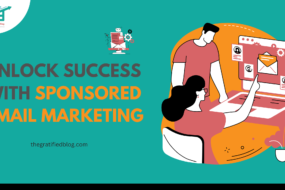
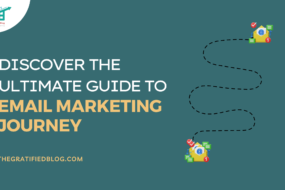
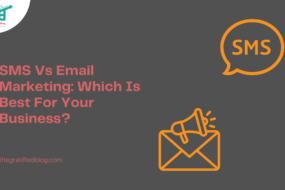

No Comments